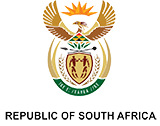Skills for a growing economy
The most effective and sustainable way to build an economy is to equip people with the skills and know-how to drive it.
Our aim is to create a more conducive environment for attracting skills and enabling companies to invest in South Africa.
We will be strengthening the connection between the skills we develop and the skills the workplace needs, to ensure we capacitate people with relevant skills to enter the job market with confidence.
Key initiatives
- Expansion of vocational education and training systems through the implementation of the approved curriculum of the three-stream model.
- University internships for 3 000 university graduates for work experience
- Funding to place 168 000 beneficiaries in short-skills programmes
- 220 000+ workplace-based learning opportunities for young people
- 105 000+ bursaries for learners and educators for study to develop scarce skills
Read more about government's successful skills development initiatives : Employment Stimulus
COVID-19 interventions
The Department of Higher Education and Training has developed a skills strategy for the implementation of the Economic Reconstruction and Recovery Plan.
Empowering young people
In addition to expanding public employment, we are providing support to young people to prepare them for work and link them to opportunities.
Our new approach to skills development links skills training directly to the demand in the economy.
This year, the National Skills Fund will provide R800 million to develop skills in the digital and technology sector through an innovative model that links payment for training to employment outcomes.
The pay-for-performance initiative has enabled 4 500 young people to access workplace experience in line with the Presidential Youth Employment Intervention (PYEI) programme which seeks to develop an agile workforce.
As part of the intervention, young people are being recruited into the revitalised National Youth Service, which offers them opportunities to undertake work that builds the community and that provides them with skills, self-confidence and work experience.
Work opportunities for young people
36 000
Through non-profit and community-based organisations
10 000
Department of Home Affairs
The Youth Employment Service (YES) programme is a business-led collaboration that was established together with private sector partners.
It was introduced to stimulate job creation and create one million quality work experiences for unemployed black youth. These young people receive skills development through learning programmes while participating in the YES programme.
The aim is to develop the participants’ skills and offer them the necessary experience to pursue permanent employment opportunities.
The YES programme has to date created over 86 500 work experiences for young people.
We will be increasing the value and expanding the criteria for participation in the Employment Tax Incentive to encourage companies to hire new work seekers. The changes will also make it easier for small businesses to hire young people.
Read more about the programme here: PYEI
TVET colleges
10 000+
Graduates placed in employment in 2022
20 000
Graduates to be placed in employment in 2023
30 000
Students in 2023
We launched the zero-rated SA Youth mobi platform, which provides pathways for young people to employment, learning and youth enterprise.
To date, over 3.3 million young people have registered on the platform and more than 894 877 young people have been placed in learning opportunities.
Digital Work Accelerator
Government and the private sector have worked closely together to grow the global business services sector from a small group of companies to one of the world’s leading players. We are on track to implement the Global Business Services Master plan and the Digital Work Accelerator to drive job creation in the digital and tech sector. It is aimed at upskilling young people.
The global business services sector is on track to create 500 000 new jobs over the next few years.
Upskilling teachers
There is significant work under way to strengthen basic education through training and equipping teachers to promote early grade reading, and bringing new teachers into the system through the Funza Lushaka programme.
As part of a move to ensure teachers have future-proofed skills, we have developed a digital platform to train teachers in coding and robotics.
Attracting skilled immigrants
The world over, the ability to attract skilled immigrants is the hallmark of a modern, thriving economy. The updated Critical Skills List reflects the skills that are in shortage today, to ensure that our immigration policy matches the demands of our economy.
Government has begun implementing recommendations for work visas, which include establishing a more flexible points-based system to attract skilled immigration, implementing a trusted employer scheme to make the visa process easier for large investors and streamlining application requirements.
The eVisa system has been launched in 14 countries, including China, India, Kenya and Nigeria.

